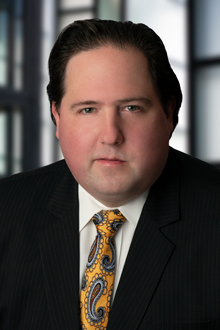Jason Jochum
Partner
Jason.Jochum@lewisbrisbois.com
Jason W. Jochum is a partner in the Chicago office of Lewis Brisbois and a member of the Insurance Coverage and Bad Faith Litigation Practices. Mr. Jochum joined Lewis Brisbois in 2020. Before moving his practice to Indiana, he previously practiced with an Illinois law firm focusing on professional liability, commercial litigation, and bad faith insurance claims.
Mr. Jochum maintains an active practice as a litigator and counselor, including advising and litigating bad faith, breach of contract, and professional liability matters. He also defends individuals, businesses, and governmental entities in a number of areas including personal injury and property damage claims, products liability, medical malpractice, construction, and transportation.
Primary Area(s) of Practice
- Professional Liability
- General Liability
Additional Experience
Admissions
IN
United States District Court for the Northern District of Illinois
United States District Court for the Northern District of Indiana
United States District Court for the Southern District of Indiana
Associations
- Illinois Bar Association
- Chicago Bar Association
Education
The John Marshall Law School
Juris Doctor, cum laude, 2014
University of Illinois at Urbana-Champaign
Bachelor of Science, Economics, 1999
Representative Matters
- Secured a significant appellate victory on a legal malpractice claim filed against a Chicago-based family law firm in Cook County, Illinois. Plaintiff claimed that attorneys’ failure to introduce evidence during a hearing caused a judgment in the five-figure range to be entered against him, and that the firm’s fees were unreasonable. Secured the dismissal of complaint in trial court based on statute of limitations – an issue that is usually deemed a question of fact. Plaintiff appealed to the Illinois Appellate Court, First District, claiming that he had not discovered his injury until 2018 when he consulted with an attorney, and that the law firm had fraudulently concealed the injury. Appellate court affirmed, holding plaintiff was aware of the adverse ruling in 2017, and that the allegations in the complaint showed that the plaintiff suspected he had not been adequately represented during the hearing. The court also noted that receipt of an attorney’s opinion with respect to a legal malpractice claim was not required for a claim to accrue pursuant to the discovery rule. Moreover, the court rejected the plaintiff’s fraudulent concealment argument. As a result, the court ultimately concluded that the plaintiff’s legal malpractice lawsuit was not filed within the applicable two-year statute of limitations.
Certifications
Certificate in Intellectual Property, The John Marshall Law School, 2014

